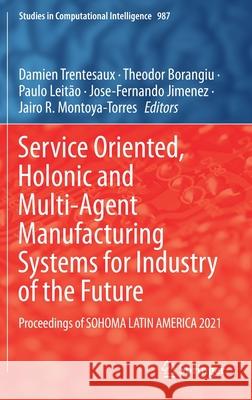Service Oriented, Holonic and Multi-Agent Manufacturing Systems for Industry of the Future: Proceedings of Sohoma Latin America 2021 » książka
topmenu
Service Oriented, Holonic and Multi-Agent Manufacturing Systems for Industry of the Future: Proceedings of Sohoma Latin America 2021
ISBN-13: 9783030809058 / Angielski / Twarda / 2021 / 358 str.
Service Oriented, Holonic and Multi-Agent Manufacturing Systems for Industry of the Future: Proceedings of Sohoma Latin America 2021
ISBN-13: 9783030809058 / Angielski / Twarda / 2021 / 358 str.
cena 605,23 zł
(netto: 576,41 VAT: 5%)
Najniższa cena z 30 dni: 578,30 zł
(netto: 576,41 VAT: 5%)
Najniższa cena z 30 dni: 578,30 zł
Termin realizacji zamówienia:
ok. 22 dni roboczych
Bez gwarancji dostawy przed świętami
ok. 22 dni roboczych
Bez gwarancji dostawy przed świętami
Darmowa dostawa!
Kategorie:
Kategorie BISAC:
Wydawca:
Springer
Seria wydawnicza:
Język:
Angielski
ISBN-13:
9783030809058
Rok wydania:
2021
Wydanie:
2021
Numer serii:
000318395
Ilość stron:
358
Waga:
0.70 kg
Wymiary:
23.39 x 15.6 x 2.24
Oprawa:
Twarda
Wolumenów:
01
Dodatkowe informacje:
Wydanie ilustrowane











